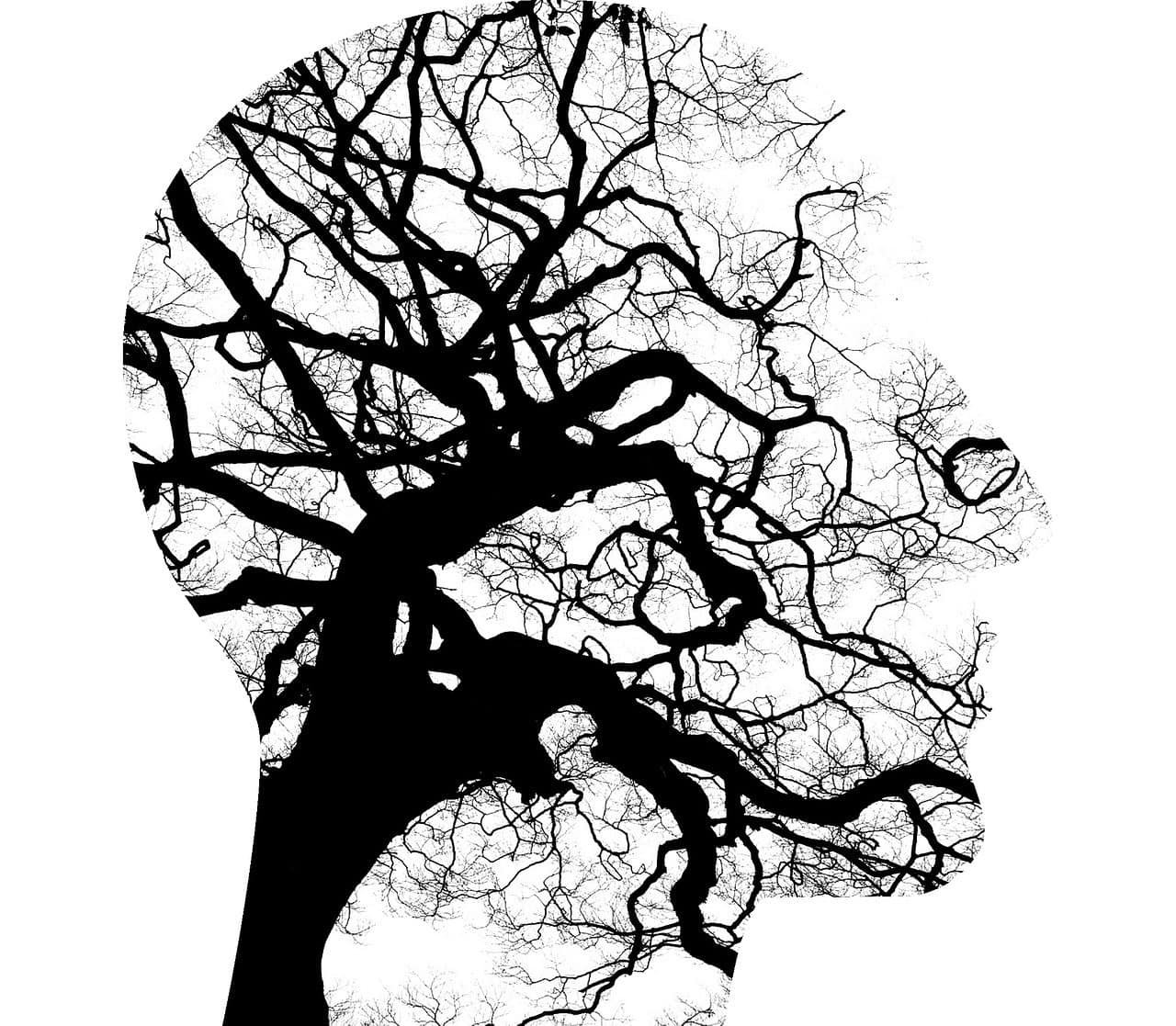Clinical Psychology
Clinical psychology is a specialized field within psychology that focuses on the assessment, diagnosis, and treatment of mental health disorders and emotional difficulties. It incorporates a range of theoretical approaches and therapeutic techniques to address the diverse needs of individuals across the lifespan.
Clinical psychologists undergo extensive training in research, assessment, and evidence-based interventions to support clients in managing their psychological well-being. Their work often involves collaborating with interdisciplinary teams and adapting interventions to address the unique needs of various populations.
In addition to clinical practice, clinical psychologists contribute to the advancement of mental health through research, advocacy, and ethical considerations.
This introduction provides a brief overview of the multifaceted role of clinical psychology in promoting mental health and well-being.
Key Takeaways
- Clinical psychology originated in the late 19th century with the establishment of the first psychological clinic in 1896.
- Cognitive-behavioral therapy and psychoanalytic theory have been key theoretical frameworks in clinical psychology.
- Assessment and diagnosis in clinical psychology require a thorough understanding of symptoms and functioning, and cultural considerations must be integrated into the process.
- Treatment and interventions in clinical psychology include individual and group therapy, collaboration with other healthcare professionals, and the use of integrative models tailored to individual needs.
History of Clinical Psychology
The history of clinical psychology dates back to the late 19th century and has evolved significantly since its inception. Early development in this field can be traced to the influential figures such as Lightner Witmer, who is often credited with establishing the first psychological clinic in 1896 at the University of Pennsylvania. Witmer’s work marked the beginning of a formalized approach to treating mental illness and paved the way for the emergence of clinical psychology as a distinct discipline.
The evolution of clinical psychology has been marked by significant milestones, including the establishment of the American Psychological Association’s Division of Clinical Psychology in 1945 and the development of evidence-based practices in the latter half of the 20th century. These advancements have shaped the current practice of clinical psychology, which emphasizes the integration of research findings into clinical work, the use of various therapeutic modalities, and a focus on providing culturally competent care to a diverse range of clients.
In contemporary times, clinical psychologists play a crucial role in addressing mental health issues across different settings, including hospitals, private practices, and community mental health centers. They are trained to assess and diagnose psychological disorders, provide individual and group therapy, and collaborate with other healthcare professionals to ensure comprehensive care for their clients.
The field continues to evolve, with an increasing emphasis on interdisciplinary collaboration, the integration of technology into psychological interventions, and a growing recognition of the importance of mental wellness and prevention.
Theoretical Foundations
The theoretical foundations of clinical psychology encompass three main components: key theoretical frameworks, historical influences on theory, and contemporary theoretical perspectives.
Understanding these foundations is essential for comprehending the evolution and current state of clinical psychology.
Key Theoretical Frameworks
One key theoretical framework in clinical psychology is the cognitive-behavioral approach. This approach emphasizes the interplay between thoughts, feelings, and behaviors, and how they influence each other. Key theoretical frameworks in clinical psychology are often supported by empirical evidence, and cognitive-behavioral therapy has been extensively researched and validated through numerous studies.
On the other hand, psychoanalytic theory, developed by Sigmund Freud, focuses on the influence of the unconscious mind on behavior. While it has contributed significantly to the field of psychology, it has been criticized for its lack of empirical support.
In contrast, cognitive behavioral therapy, with its structured and goal-oriented nature, has demonstrated effectiveness in treating various mental health conditions and is widely used in clinical practice due to its strong empirical foundation.
Historical Influences on Theory
An understanding of the historical influences on theory, or theoretical foundations, is essential for comprehending the development of clinical psychology. Historical influences have shaped the theoretical frameworks that form the basis of clinical psychology, reflecting the evolving cultural context in which they emerged. This awareness allows for a deeper appreciation of the complexities and nuances within the field.
-
Emotion:
-
The recognition of historical influences can evoke a sense of respect for the resilience and adaptability of clinical psychology as it has responded to changing societal norms and values.
-
Impact:
-
Understanding the cultural context in which theories developed can elicit a profound sense of connection to the ever-changing landscape of human experience and the role of clinical psychology within it.
Contemporary Theoretical Perspectives
In examining contemporary theoretical perspectives in clinical psychology, it is imperative to trace the evolution of theoretical foundations from historical influences, thereby elucidating the dynamic interplay between past and present paradigms. Contemporary approaches in clinical psychology encompass integrative models that draw from multiple theoretical orientations, emphasizing the importance of tailoring treatment to individual needs. These integrative models integrate evidence-based practices with cultural considerations, reflecting diverse perspectives and acknowledging the influence of cultural backgrounds on psychological well-being. Cultural considerations play a pivotal role in shaping contemporary theoretical perspectives, highlighting the need for culturally sensitive and diverse approaches to assessment and intervention. The table below provides a glimpse into the diverse perspectives and integrative models that are central to contemporary theoretical perspectives in clinical psychology.
| Contemporary Approaches | Integrative Models | Cultural Considerations | Diverse Perspectives |
|---|---|---|---|
| Cognitive-Behavioral Therapy (CBT) | Dialectical Behavior Therapy (DBT) | Cross-Cultural Psychology | LGBTQ+ Affirmative Therapy |
| Psychodynamic Therapy | Acceptance and Commitment Therapy (ACT) | Multicultural Counseling | Feminist Therapy |
| Humanistic-Existential Therapy | Integrative Behavioral Couple Therapy (IBCT) | Indigenous Psychologies | Disability-Inclusive Therapy |
Assessment and Diagnosis
The assessment and diagnosis of psychological disorders require a thorough understanding of the individual’s symptoms and functioning. Diagnostic criteria and assessment tools play a crucial role in this process, enabling clinical psychologists to systematically evaluate the presence and severity of symptoms. These criteria, often outlined in the Diagnostic and Statistical Manual of Mental Disorders (DSM-5), help in standardizing the diagnosis, thereby ensuring consistency across different clinicians and settings. Additionally, the utilization of various assessment tools, such as self-report inventories and structured interviews, aids in gathering comprehensive information for an accurate diagnosis.
Differential diagnosis is another essential aspect, involving the careful consideration and comparison of potential disorders that may explain the individual’s symptoms. This process demands a high level of expertise and attention to detail to distinguish between similar conditions, ensuring that the individual receives the most appropriate treatment. Moreover, cultural considerations must be integrated into the assessment and diagnosis process. Understanding the influence of culture on an individual’s expression of distress and their beliefs about mental health is vital for an accurate assessment. It is essential to recognize that cultural differences can significantly impact the manifestation of symptoms and the individual’s help-seeking behaviors. Consequently, cultural competence is essential for effective and ethical clinical practice.
Therapeutic Techniques
Therapeutic techniques encompass a range of evidence-based interventions aimed at addressing psychological distress and promoting mental well-being. These therapeutic approaches and counseling techniques are tailored to the individual needs of clients and are informed by psychological theories and empirical research.
One widely used therapeutic approach is cognitive-behavioral therapy (CBT), which focuses on identifying and modifying maladaptive thought patterns and behaviors. CBT is effective in treating various mental health conditions, including anxiety disorders, depression, and post-traumatic stress disorder.
Another important therapeutic technique is psychodynamic therapy, which explores unconscious thoughts and past experiences to gain insight into current emotional and behavioral difficulties. This approach emphasizes the therapeutic relationship and aims to help clients develop a deeper understanding of themselves.
Additionally, humanistic or person-centered therapy prioritizes the client’s subjective experience and emphasizes empathy, unconditional positive regard, and genuineness from the therapist.
Furthermore, various counseling techniques such as mindfulness-based interventions, dialectical behavior therapy, and interpersonal therapy are utilized to address specific mental health concerns. Mindfulness-based interventions focus on developing present-moment awareness and acceptance, while dialectical behavior therapy emphasizes emotion regulation and interpersonal effectiveness. Interpersonal therapy targets interpersonal conflicts and communication patterns to alleviate distress.
Specialized Populations
When working with specialized populations, clinical psychologists must adapt therapeutic techniques to meet the unique needs and challenges of specific demographic groups. This requires cultural competence and an understanding of diverse settings to effectively address the mental health concerns of individuals from different backgrounds. Specialized training is essential for clinical psychologists to develop the skills necessary to work with these populations and navigate the unique challenges they may face.
Emotional Impact:
-
Empathy: It is crucial for clinical psychologists to empathize with the experiences of their clients from diverse backgrounds, acknowledging the impact of their cultural and social environment on their mental health.
-
Example: Understanding the historical trauma experienced by indigenous populations and the intergenerational effects on their mental well-being can evoke a sense of empathy and urgency in addressing their needs.
-
Advocacy: Clinical psychologists working with specialized populations often become advocates for their clients, striving to ensure that their unique challenges are recognized and addressed within the mental health system.
-
Example: Advocating for improved access to mental health services for refugees and immigrants, who may face language barriers and discrimination, can evoke a sense of social justice and the need for systemic change.
Ethical Considerations
In addressing ethical considerations within specialized populations, clinical psychologists must navigate complex moral and professional obligations to ensure the well-being and rights of their clients are upheld. This entails grappling with ethical dilemmas that may arise when working with these populations, such as maintaining confidentiality while also fulfilling reporting obligations in cases of potential harm to the client or others.
Additionally, clinical psychologists must be mindful of the professional boundaries that govern their interactions with specialized populations, as these boundaries play a crucial role in safeguarding the integrity of the therapeutic relationship.
Professional boundaries in clinical psychology encompass a range of considerations, including the appropriate use of power and influence, maintaining objectivity, and avoiding dual relationships. When working with specialized populations, such as children, the elderly, or individuals with severe mental illness, these boundaries become even more critical.
For example, establishing and maintaining appropriate boundaries with child and adolescent clients is essential for their protection and growth. Similarly, when working with the elderly, maintaining professional boundaries is crucial for respecting their autonomy and dignity. Furthermore, with individuals experiencing severe mental illness, maintaining these boundaries is vital for ensuring the therapeutic relationship remains focused on the client’s well-being and treatment goals.
Research and Innovations
Research and innovations in clinical psychology play a pivotal role in advancing evidence-based practices and enhancing the effectiveness of interventions for specialized populations. As technology continues to evolve, research methods in clinical psychology are also adapting to incorporate innovative tools and techniques. The integration of technological advancements in research not only facilitates data collection and analysis but also opens new avenues for understanding the complexities of human behavior and mental health.
The use of virtual reality (VR) in research allows clinicians to create simulated environments that help individuals confront and manage their fears, such as phobias and post-traumatic stress disorder, in a controlled and safe setting. This innovative approach not only enhances traditional exposure therapy but also provides a more immersive and tailored experience for patients, leading to potentially improved treatment outcomes.
Furthermore, the utilization of biofeedback devices and mobile applications enables individuals to actively participate in self-monitoring and regulation of their physiological and emotional states. This empowers patients to develop a deeper awareness of their own responses to stressors and aids clinicians in devising personalized intervention strategies. The incorporation of such technological tools not only enhances the accuracy of assessments but also fosters a sense of autonomy and empowerment in individuals seeking mental health support.
These advancements in research methods and technology are revolutionizing the field of clinical psychology, offering promising prospects for more precise and personalized interventions, ultimately improving the well-being of diverse populations.
Role in Mental Health Support
Clinical psychologists play a crucial role in mental health support through therapeutic interventions that aim to alleviate psychological distress and promote overall well-being.
In addition, they are skilled in assessing and diagnosing various mental health disorders, enabling them to provide tailored treatment plans to individuals in need.
Therapeutic Interventions for Support
Therapeutic interventions for support play a crucial role in providing effective mental health support to individuals in need. These interventions encompass a range of approaches that aim to address the emotional and psychological well-being of individuals.
When considering mindfulness practices and self-care techniques, individuals are encouraged to develop a deeper awareness of their thoughts and emotions, fostering a sense of inner peace and resilience.
Moreover, the cultivation of interpersonal relationships and the establishment of a therapeutic alliance between the individual and the mental health professional can evoke feelings of trust, safety, and validation. These emotional connections can significantly contribute to a person’s sense of belonging and support, ultimately enhancing their mental health journey.
Assessing and Diagnosing Disorders
Assessing and diagnosing disorders plays a pivotal role in providing targeted and effective mental health support to individuals in need. Early intervention is crucial in preventing the exacerbation of mental health issues, and accurate diagnosis is the first step in this process. It allows for the formulation of appropriate treatment plans tailored to the specific needs of the individual. Through a comprehensive assessment, clinical psychologists can identify the underlying factors contributing to the disorder, paving the way for personalized interventions. This targeted approach not only enhances the effectiveness of the treatment but also reduces the risk of misdiagnosis. Furthermore, accurate diagnosis is essential for establishing the baseline against which the progress of treatment can be measured, ensuring that interventions are yielding the desired outcomes.
| Role in Mental Health Support | Early Intervention | Treatment Planning |
|---|---|---|
| Identifying underlying factors contributing to disorders | Facilitating timely support and care | Tailoring interventions to individual needs |
| Establishing a baseline for treatment progress | Preventing escalation of mental health issues | Ensuring effectiveness of interventions |
Promoting Overall Well-Being
Prominently, clinical psychologists consistently emphasize the significance of promoting overall well-being as an integral aspect of their role in mental health support. This involves understanding the mind-body connection and implementing effective stress management techniques to enhance psychological resilience.
To evoke positive emotions, clinical psychologists focus on:
-
Encouraging individuals to cultivate a strong mind-body connection through mindfulness practices, exercise, and relaxation techniques. By nurturing this connection, individuals can better manage stress and improve their overall mental well-being.
-
Incorporating positive psychology principles to foster resilience and emotional strength, enabling individuals to navigate challenges with a more optimistic outlook. Building resilience through positive psychology interventions can empower individuals to thrive in the face of adversity and maintain a sense of well-being.
Conclusion
In conclusion, clinical psychology has a rich history and is grounded in various theoretical foundations. It plays a vital role in assessment, diagnosis, and therapeutic techniques for specialized populations.
Ethical considerations and ongoing research drive innovation in the field. As a key player in mental health support, clinical psychology continues to evolve and adapt to meet the diverse needs of individuals.
How can we ensure that the future of clinical psychology remains responsive and effective in addressing mental health challenges?







